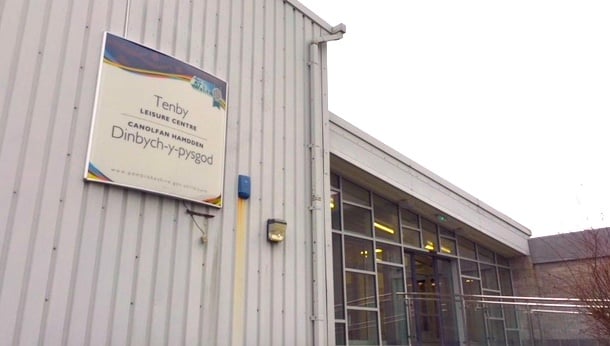The cost of using leisure centres and similar council-run facilities in Pembrokeshire could soon rise by more than 10% to help the cash-strapped County Council balance its budget.
Members of the county council’s Cabinet, meeting on February 12, are recommended to increase fees for leisure services by inflation plus four per cent, a rise of 10.7 per cent in total.
A report for Cabinet members says: “In line with the authority’s budget strategy there is a requirement for fees and charges to increase in line with CPI (Inflation) annually. Due to the significant financial pressures facing the local authority, an inflationary increase alone will be insufficient to contribute towards the authority’s statutory requirement to set a balanced budget.”
It says that, historically, Pembrokeshire fees and charges have been lower than neighbouring authorities, but that gap has narrowed over the past two years, but it is “considered preferable to increase fees and charges rather than reduce service provision, such as reductions to opening hours or facility closures”.
The proposal to increase charges follows a recent public consultation on the 2024/25 county council budget, at a time when the council is facing a shortfall of £31.9m, and may well increase the level of council tax by as much as 21 per cent.
That consultation included a question on possible rises in leisure charges of approximately 10 per cent, with the majority agreeing to a rise if needed, the report says.
During this financial year, the service has seen significant growth in both usage and income, with an extra 140,000 visits and a nine per cent growth in membership numbers.
“Whilst setting leisure fees and charges, it is essential to consider the cost of provision alongside the marketplace and sector position,” the report says.
“In particular, avoiding setting fees that we believe the market will not bear, as this risks diminishing returns. With this in mind, the proposed fees have been benchmarked against other local authority providers in the region.”
The proposal also maintains the Passport to Leisure scheme, with charges frozen for those who are eligible.
Three options are to be considered by Cabinet members: a 6.7 per cent inflation rate increase, which would raise £281,000, but would only cover inflationary pressures; an inflation plus four per cent rate, as an average across services – the favoured – which would raise an additional £198,000; and lastly an inflation plus five per cent rate which would raise an additional £248,000.
The last option is not recommended as it could led to a drop in users, generating no more income than the plus-four per cent option.
The report concludes: “Increases to fees and charges need to be considered carefully, balancing the need to generate additional income, with the importance of avoiding setting charges, which are unaffordable.
“From our analysis, an overall increase of around 10 per cent [including inflation] is achievable, but going beyond that level risks a double impact of reduced income and less people using our facilities to improve their well-being. We are broadly in line with other leisure services in the region and remain competitive overall.”




